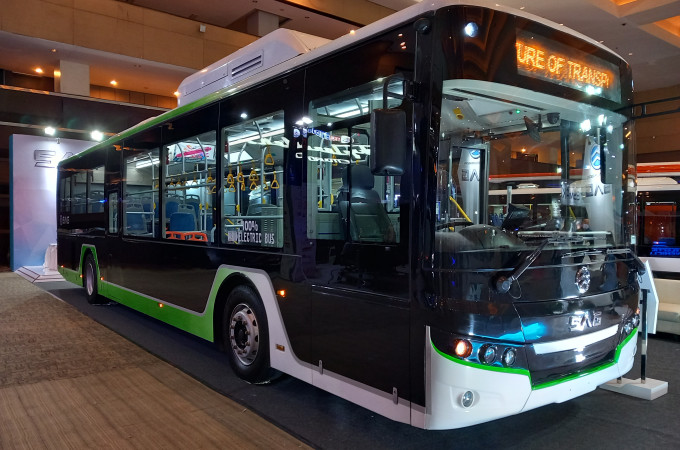A tale of two shows: a report from Busworld Southeast Asia 2022
By Bradley Osborne - 4th November 2022

12-metre electric city bus by Golden Dragon
Indonesia – Even in an age of mass, instant communication and extensive transport networks, nations remain obstinately heterogeneous, even within their sharply-defined borders: the needs and wants of the people and the market vary from place to place, according to the particulars of the local economy and geography. The division between the urban and the rural remains in most places. There are perhaps very few countries in the world more heterogeneous than Indonesia, home to the second-largest metropolitan area in the world; yet also a country with massive areas of wilderness largely untouched by global civilisation. Jakarta, the capital and megacity, is the centre of an urban area with over 35 million people, according to the most recent estimates; and yet only 56.64% of the country’s approximately 275 millions live in towns and cities.1 Its over 17,000 islands are home to a large number of different ethnic groups, separated by jungle and mountain as well as by sea.
It is only natural, then, that we should find at Busworld Southeast Asia – held in Jakarta between 5-7 October – a multiplicity of concerns and priorities; and while these are not directly in contradiction with each other, they are nevertheless a reflection of the divergent demands of the Indonesian market. In one part of the hall, delegates spoke with urgency about the need to decarbonise transportation and reduce congestion in the capital; elsewhere, visitors saw glossy diesel coaches for taking tourists out of the cities and into the farthest corners of the archipelago.
